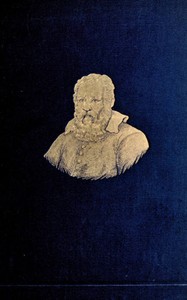Pioneers of Science by Sir Oliver Lodge
"Pioneers of Science" by Sir Oliver Lodge is a historical account written in the late 19th century. The work explores the major figures in the development of scientific thought, particularly focusing on astronomers who contributed to our understanding of celestial mechanics and the nature of our universe. It highlights the journeys of notable scientists such as Copernicus, Tycho Brahe, and Galileo, examining their lives and the transformative ideas they introduced. The opening
of the book sets the stage by introducing the origins of Lodge's lectures on the history and progress of astronomy, initially prompted by colleagues in 1887. Lodge outlines the contrasting mentalities of the general populace and the great minds of science. He reflects on how pioneers like Thales and Archimedes moved away from ignorance and superstition, pushing humanity to understand the universe’s workings rather than simply accepting the status quo. Particularly, he emphasizes Copernicus's revolutionary theory placing the sun at the center of the solar system—a fundamental shift in thought that marked the beginning of modern astronomy and initiated a broader exploration of scientific inquiry. (This is an automatically generated summary.)
Read or download for free
| How to read | Url | Size | |||
|---|---|---|---|---|---|
| Read now! | https://www.gutenberg.org/ebooks/28613.html.images | 842 kB | |||
| EPUB3 (E-readers incl. Send-to-Kindle) | https://www.gutenberg.org/ebooks/28613.epub3.images | 4.3 MB | |||
| EPUB (older E-readers) | https://www.gutenberg.org/ebooks/28613.epub.images | 4.3 MB | |||
| EPUB (no images, older E-readers) | https://www.gutenberg.org/ebooks/28613.epub.noimages | 349 kB | |||
| Kindle | https://www.gutenberg.org/ebooks/28613.kf8.images | 4.6 MB | |||
| older Kindles | https://www.gutenberg.org/ebooks/28613.kindle.images | 4.5 MB | |||
| Plain Text UTF-8 | https://www.gutenberg.org/ebooks/28613.txt.utf-8 | 673 kB | |||
| Download HTML (zip) | https://www.gutenberg.org/cache/epub/28613/pg28613-h.zip | 5.2 MB | |||
| There may be more files related to this item. | |||||
About this eBook
| Author | Lodge, Oliver, Sir, 1851-1940 |
|---|---|
| Title | Pioneers of Science |
| Credits |
Produced by Audrey Longhurst, Greg Bergquist and the Online Distributed Proofreading Team at http://www.pgdp.net (This file was produced from images generously made available by The Internet Archive/American Libraries.) |
| Reading Level | Reading ease score: 64.8 (8th & 9th grade). Neither easy nor difficult to read. |
| Language | English |
| LoC Class | QB: Science: Astronomy |
| Subject | Astronomers |
| Subject | Astronomy -- History |
| Subject | Tides |
| Category | Text |
| EBook-No. | 28613 |
| Release Date | Apr 26, 2009 |
| Copyright Status | Public domain in the USA. |
| Downloads | 435 downloads in the last 30 days. |
| Project Gutenberg eBooks are always free! | |

